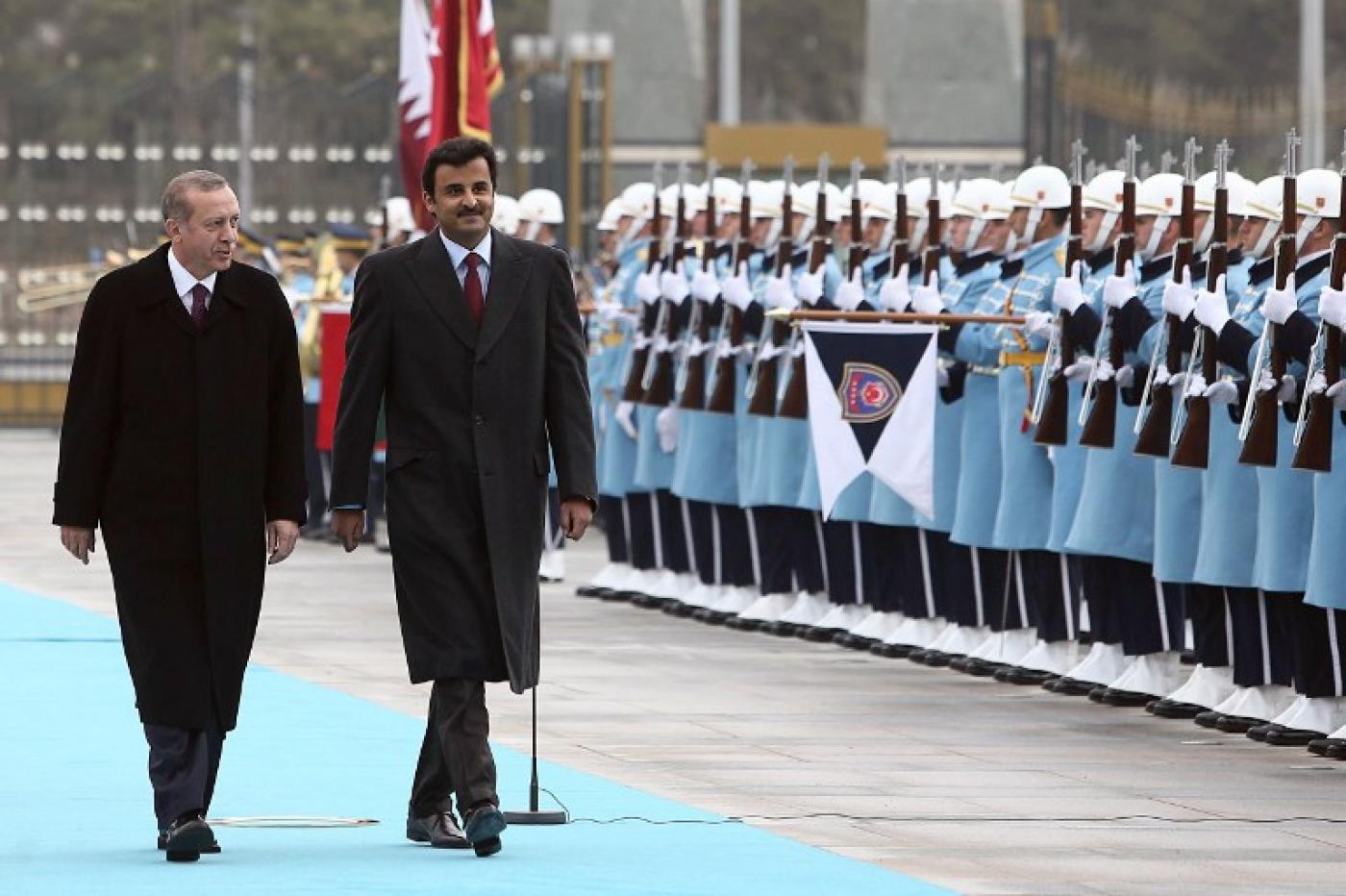On Tuesday, July 6, 2021, Turkish Vice President Fuat Oktay met with Qatari Emir Sheikh Tamim bin Hamad Al Thani in Doha to discuss economic cooperation between the two countries. This meeting comes as part of a series of discussions aimed at strengthening the economic ties between Turkey and Qatar.
During the meeting, Vice President Oktay and Emir Al Thani discussed a range of economic issues, including trade, investment, and tourism. They also discussed the ongoing construction of the Istanbul Canal, a massive infrastructure project that will connect the Black Sea and the Marmara Sea.
The Istanbul Canal is a major priority for the Turkish government, and it has the potential to transform the country’s economy by creating new opportunities for trade and transportation. The canal is expected to reduce shipping traffic in the Bosporus Strait, which is one of the busiest waterways in the world. It will also provide a new route for shipping goods between Asia and Europe, bypassing the congested and often dangerous waters of the Bosporus.

The Qatari government has expressed interest in investing in the Istanbul Canal project, and Vice President Oktay and Emir Al Thani discussed the details of this potential investment during their meeting. The Qatari government has also expressed interest in investing in other infrastructure projects in Turkey, including airports, highways, and railways.
In addition to infrastructure investment, the two leaders discussed ways to increase trade and investment between Turkey and Qatar. They noted the importance of diversifying their trade and investment portfolios and exploring new opportunities in sectors such as energy, agriculture, and technology.
Tourism was also a major topic of discussion during the meeting. Turkey and Qatar are both popular tourist destinations, and the two countries are looking for ways to increase tourism between them. They discussed the possibility of launching joint tourism campaigns and creating new travel packages to encourage more visitors to travel between the two countries.
The meeting between Vice President Oktay and Emir Al Thani is part of a broader effort to strengthen the economic ties between Turkey and Qatar. The two countries have a long history of economic cooperation, and they are looking for new opportunities to expand this cooperation in the coming years.
One area of potential cooperation is in the field of renewable energy. Turkey has made significant investments in renewable energy in recent years, and the Qatari government has expressed interest in partnering with Turkey in this area. The two countries have already signed a Memorandum of Understanding on Renewable Energy and Energy Efficiency, and they are exploring new opportunities to work together on this important issue.
Another area of potential cooperation is in the field of defense. Turkey and Qatar have a strong defense partnership, and they are looking for ways to expand this partnership to include joint military exercises and the exchange of military technology and expertise.
The meeting between Vice President Oktay and Emir Al Thani is a positive step towards strengthening the economic ties between Turkey and Qatar. The two countries have a lot to offer each other, and by working together, they can achieve their shared goal of economic growth and development.
In conclusion, the meeting between Vice President Oktay and Emir Al Thani is a testament to the strong and growing economic ties between Turkey and Qatar. The two countries are committed to expanding their cooperation in a range of areas, including infrastructure investment, trade, and tourism. By working together, they can create new opportunities for economic growth and development, and strengthen their positions as important players in the global economy.
What is the Istanbul Canal, and why is it important for Turkey’s economy?
The Istanbul Canal is a massive infrastructure project that will connect the Black Sea and the Marmara Sea. It is a major priority for the Turkish government, as it has the potential to transform the country’s economy by creating new opportunities for trade and transportation. The canal is expected to reduce shipping traffic in the Bosporus Strait, which is one of the busiest waterways in the world. It will also provide a new route for shipping goods between Asia and Europe, bypassing the congested and often dangerous waters of the Bosporus.
What is the purpose of the Memorandum of Understanding on Renewable Energy and Energy Efficiency signed by Turkey and Qatar?
Answer: The Memorandum of Understanding on Renewable Energy and Energy Efficiency signed by Turkey and Qatar aims to strengthen cooperation between the two countries in the field of renewable energy and energy efficiency. The agreement seeks to enhance the potential for investment in renewable energy projects and to promote the transfer of technology and expertise between the two countries. It also aims to support the development of renewable energy policies and regulations.
How can the Istanbul Canal benefit Turkey’s economy?
Answer: The Istanbul Canal is a major infrastructure project that will create new opportunities for trade and transportation between Asia and Europe. By reducing shipping traffic in the Bosporus Strait, the canal will increase the safety and efficiency of maritime transportation in the region. It will also provide a new route for shipping goods, which will help to reduce transportation costs and increase the competitiveness of Turkish ports. In addition, the canal will create new jobs in the construction and operation of the canal and in the development of new industries that will be supported by the canal. Overall, the Istanbul Canal has the potential to significantly boost Turkey’s economy and increase its role in global trade.
What are some of the potential challenges or obstacles that could arise during the construction of the Istanbul Canal?
- Environmental concerns: The canal will involve the excavation of a large area of land and the construction of new waterways. This could have a significant impact on the local environment and ecosystems, including the water quality and wildlife habitats in the area.
- Funding: The construction of the canal is expected to be expensive, and funding for the project may be challenging to secure. There may also be concerns about the economic viability of the project and its potential return on investment.
- Technical difficulties: The construction of the canal will involve complex engineering and technical challenges, including the need to manage water flow and control erosion along the canal walls. There may also be challenges related to the excavation and disposal of large amounts of soil and rock.
- Political opposition: The canal has been a controversial project, with some critics arguing that it could have negative impacts on the environment, local communities, and the economy. Political opposition to the project could slow down or disrupt the construction process.
- Legal and regulatory issues: The construction of the canal will require permits and approvals from a range of government agencies, and there may be legal challenges related to the environmental impacts of the project or the rights of local communities and indigenous peoples.
Source: https://www.aljazeera.com/



